Part 95: Splendid Isolation
Chapter 15 - Splendid Isolation - 1896 to 1900As the nineteenth century draws to a close, Al Andalus is rocked by tragedy as Sultan Utbah ibn Raed al-Zulfiqar finally passes away.
Utbah would be praises for his tactful politick on the domestic and foreign fronts, with the Sultan of Al Andalus successfully navigating the Congress of Cádiz, the Springtime of Nations, the Iberian War, the birth of socialism, the Scramble for Africa and the Continental War. After almost sixty years of unbroken rule, Al Andalus emerges as the uncontested world superpower, with its reach stretching across the width of the globe.
With his death, however, all of that was about to change.

Choosing this opportune moment to lash out, a small but dedicated faction of “Reformed Socialists” somehow managed to gain a plurality in the Majlis al-Shura, the ruling hereditary parliament of Al Andalus.

Once dubbed "red republicans" by Sultan Utbah, the royal family and their supporters had no love for leftists, but these socialists were not the same as those vilified by the now-dead sultan. The Socialist Faction had undergone several schisms and divergences over the past few decades, and this particular breed of socialism actually argued that the monarchy was a necessary stabilising force in society, and proposed that the ruling class had a duty to support their workers and labourers through social reform, or else risk the outbreak of widespread revolution.
And remarkably, a number of prominent viziers flocked around this scarlet banner, led by one Sheikh al-Basique - a young, idealistic nobleman with a famous name and ambitious aspirations.


Unfortunately for him and his supporters, however, their rise to power would no go unchallenged.
Young Khuzaymah met with his first Grand Vizier within days of his election, with the two men publicly attending the King’s Cup, a nationwide football tournament held in celebration of Khuzaymah’s upcoming coronation.

After a cordial greeting and lengthy talk, Khuzaymah cautiously granted his new Grand Vizier his support, and it wasn’t very long before Grand Vizier Basique was faced with his first challenge - the Khedivate.
Backed by his party, al-Basique agreed to formally recognise Wahb Min-al-Bita as Khedive of the Kongo, granting his family hereditary rule in Africa in exchange for political and monetary support, and in doing so infuriating the Imperialists and Royalists in the Majlis Assembly, both of whom wanted to assert direct rule in Africa.

Even Khuzaymah, soon to be coronated sultan, expressed his worries about another dynasty rising to power in Al Andalus - the Tirruni’s were already proving a handful, and the Khedive would certainly be no friend to the Zulfiqars.
At the same time, diplomats from the North German Republic and South German Union arrived at Qadis, with both parties desperate to win Andalusia as an ally. But if Basique was going to fulfil his domestic goals he would have no time or resources to waste in Germany, so both parties left empty-handed.


There would be no military adventures under his rule, the Grand Vizier vowed, instead redirecting capital into the establishment of new manufactories, with dozens of textile mills, furniture factories, steamer shipyards, ammunition arsenals, liquor distilleries and machine parts factories were funded and constructed by the socialists.


The public's attention was occupied by something else entirely, however - the coronation of Khuzaymah Zulfiqar.
With the final costs amounting to tens of millions of dinars, the coronation’s sheer lavishness and ostentatious opulence was unmatched in recent history. Hundreds of thousands of commoners took to the streets of Qadis, thousands of political dignitaries and famous celebrities made up the guestlist, hundreds of attendants hovered with drinks and food, half-a-dozen orchestras whipped music into the air, and Khuzaymah himself was robed in emerald linen, with the ceremonial scissored sword at his side and jewelled crown on his brow.
Khuzaymah’s coronation would become a bookmark in history, heralding the dawn of a new century and a new era - in more ways than one.

The coronation painted a picture of Al Andalus at its peak, but under all the splendour and grandeur, the first cracks finally began to show.
As the coronation came to a close, a man clad entirely in black broke through the thronging crowds and fired two ear-splitting shots. Guards immediately leapt to the defence of Khuzaymah, but the bullets thudded into someone else entirely, standing a scant few feet from the Sultan - Sheikh al-Basique, Grand Vizier of Al Andalus.

The Grand Vizier immediately dropped to the ornate stone, with al-Basique perishing after a painful night and his assassin vanishing into thin air.
In all this mayhem and bedlam, the newly-crowned Sultan Khuzaymah rose to prominence, acting quickly to restore order in the streets and parliament alike. Assuming increasingly greater powers, the Sultan issued a series of directives that saw several prominent viziers arrested, a strict curfew established in Qadis, a police force deployed to enforce it, and - most importantly - a new Grand Vizier appointed to lead the Majlis.


Abdul bin Musad-un was technically a member of the Reformed Socialists, but many suspected that his allegiances laid outside party lines. There were even whispers that he was a member of the SGA - the Sultanic Guard of Andalusia, which had almost certainly infiltrated the many factions of the Majlis. So unsurprisingly, his appointment quickly incited the outrage and fury of the socialists, who demanded that Musad-un be deposed and replaced.
Sultan Khuzaymah refused, of course, claiming that he was the only man capable of restoring order to Al Andalus.
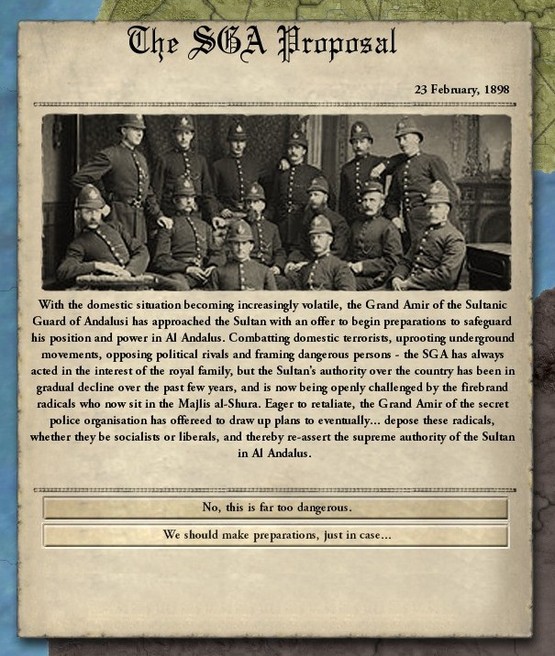
this event increases chance of assassination
As it turns out, however, even the Sultan wouldn't get his way.
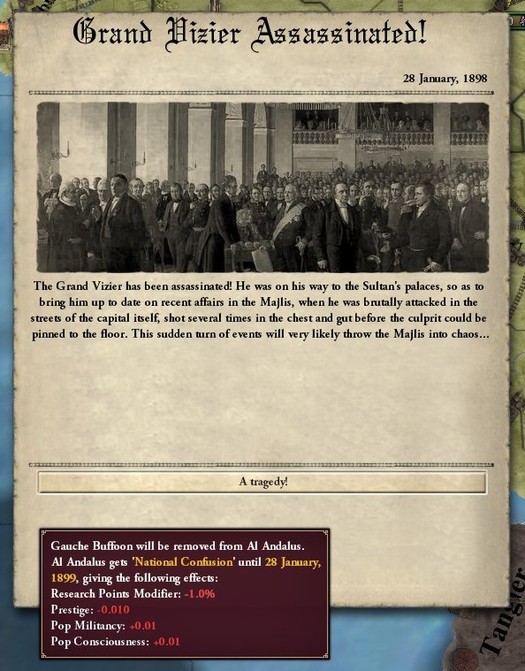
Musad-un was Grand Vizier only a few short days before being assassinated, with his automobile exploding whilst en route to the Majlis Assembly.
And this time, it was the socialists who leapt to action. Just hours after the assassination, they named a new Grand Vizier to the Majlis - Batal Rodyllah, a prominent reformer who’s influence and authority had rocketed over the past few months.
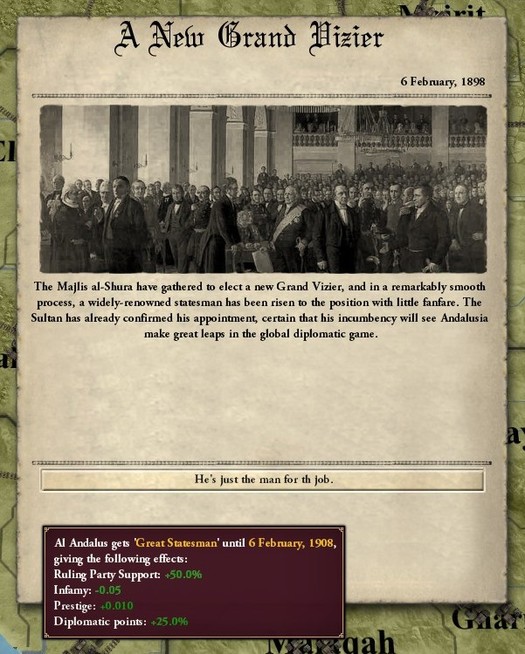

Whilst the socialists re-secured their grip in the assembly, Khuzaymah Zulfiqar withdrew from public life for a few months, with many later speculating that he had suffered a mental breakdown after being outmaneuvered by his enemies in the Majlis.
With careful treatment from the royal physicians, Khuzaymah was gradually nursed back to health over the course of several months, but he remained detached and isolated. And to make matters worse, this therapy also saw him become increasingly dependent on laudanum, with his doctors trying and failing to wean him off the drug.
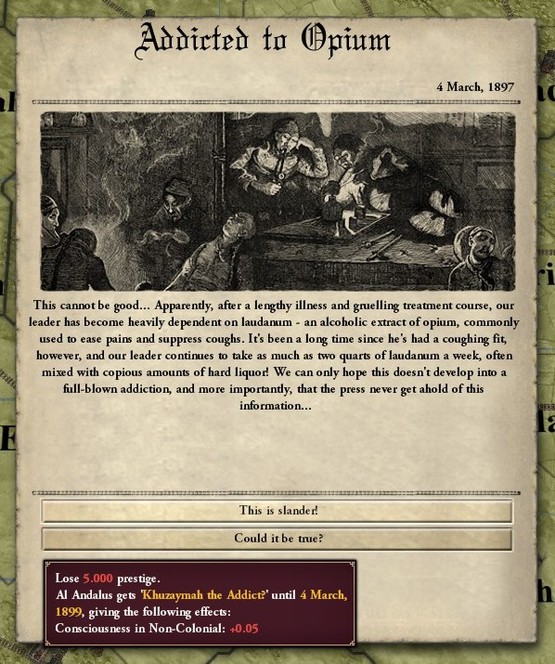
The socialists, meanwhile, took full advantage of the Sultan’s temporary retreat. The national budget was restructured so that taxes on the poor were cut, along with military expenditure and naval maintenance, whilst funding for further industrialisation, administration and national education were all increased.
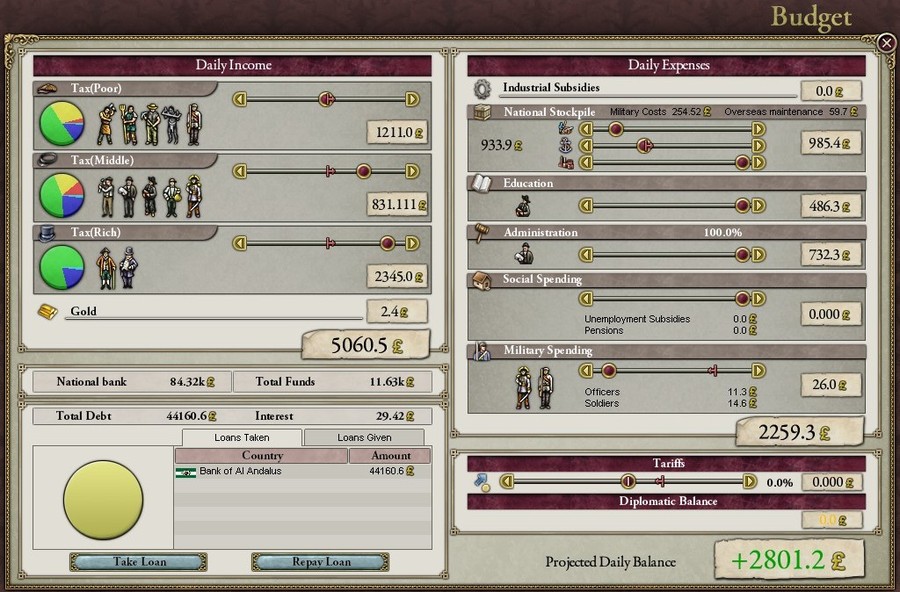
Surplus income was also channelled into the construction of new railroads, primarily in southwestern Iberia, where the rugged terrain had previously made railroads a costly and often ineffective investment.
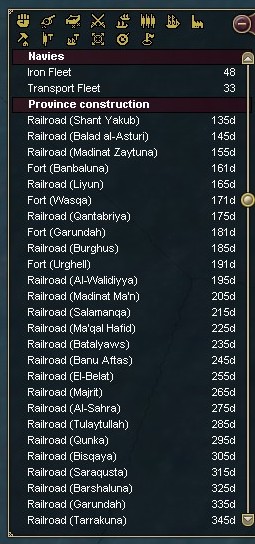
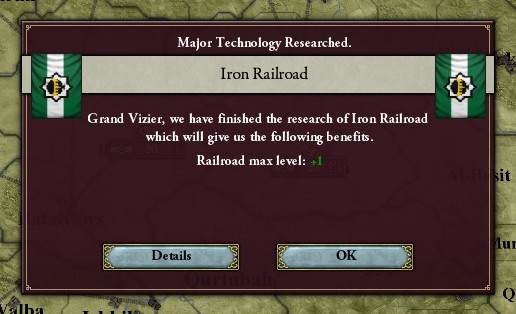
On the foreign front, meanwhile, Grand Vizier Rodyllah quickly reaffirmed his support for al-Basique’s isolationist policy. Al Andalus would not flourish by dispatching expensive expeditions into dense jungles or fighting futile wars for long-forgotten claims, but by fortifying their peninsula, investing in internal development, striving for social reform and prospering in splendid isolation.
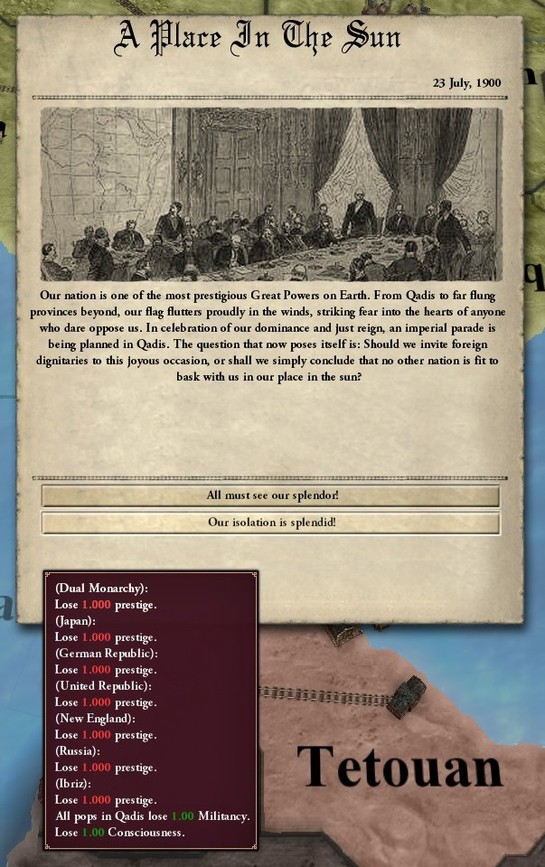
Securing the isolation of Al Andalus would not be so simple, however, and Rodyllah was confronted with a crisis later that year.
In August of 1898, the Oba of Benin and King of West Africa formally declared war on Morocco, with the pagans likely hoping to seize Ivory Coast and Mali from the Berbers. The Beninese had emerged victorious in their previous wars, but Morocco was still a mighty foe, so they also dispatched a call to their arms to their allies - Al Andalus.
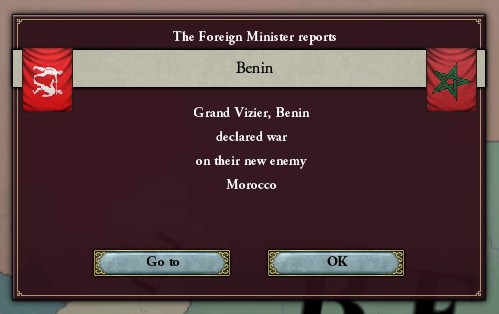
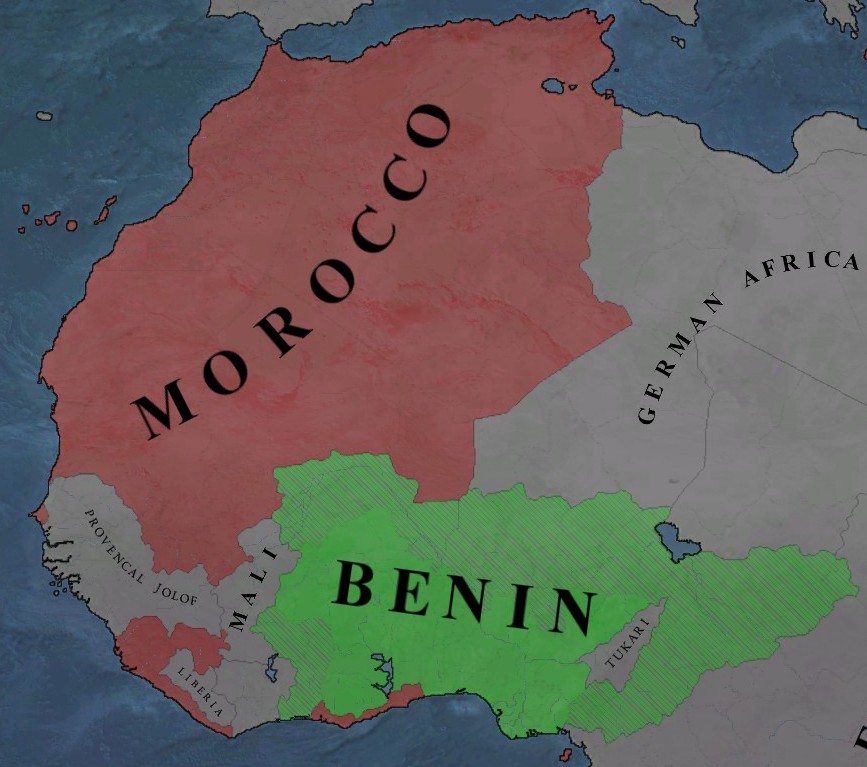
The Almoravid government immediately sent their newly-rebuilt navy to patrol the straits of Gibraltar, quickly followed by massive garrisons to the fortresses in Tangier and Ceuta, where they expected the Andalusi to strike first.
There would be no crossing this time, however. There would be no battle for the straits, no crossing into Africa and no sacking of Marrakesh.
Benin would stand alone.
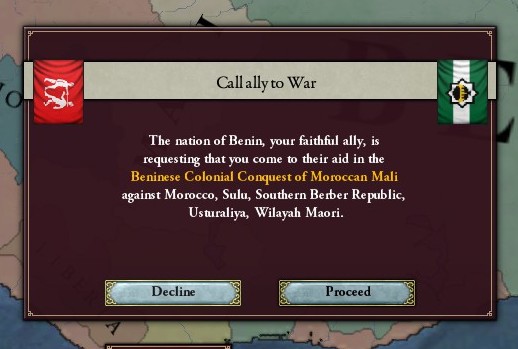
To the east, a war had just come to an end. A French-English army had spent the past decade campaigning in Indochina, and with the help of large Russian expedition, they finally managed to overcome native resistance and seize the entirety of Khmer and Laos, as well as large parts of the Malay Peninsula.
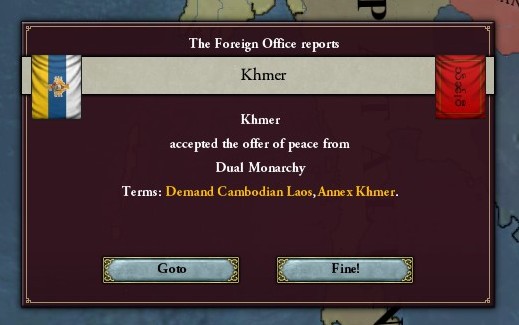
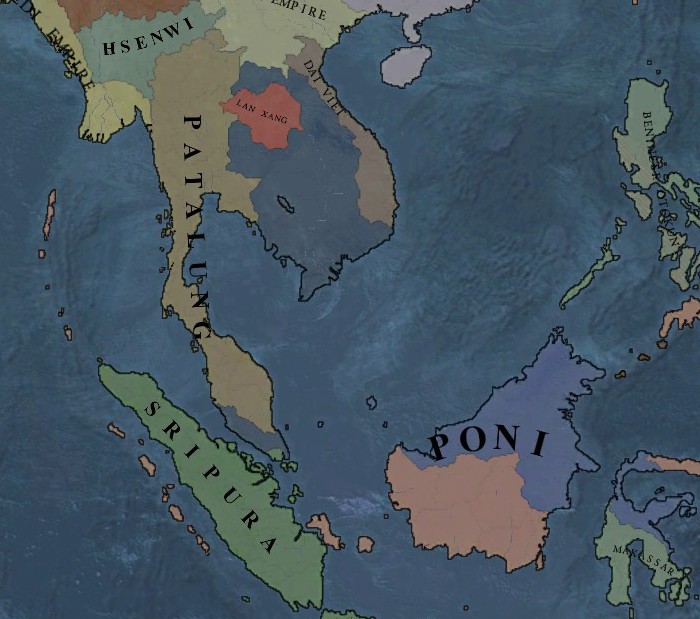
Back in Qadis, meanwhile, a large party had just arrived from Alexandria.
After a series of unwise investments into dubious companies had bankrupted him, King Apanoub was seeking foreign support for the construction of the Suez Canal, an artificial channel that would combine the waters of the Mediterranean and Red Seas. The project was certainly viable, the only reason it hadn’t been constructed yet was because the Apanoub King was steadfastly opposed to foreign entanglement in Egypt, but his financial weakness made this the perfect - and maybe only - opportunity for another power to seize the key waterway between oceans.
The isolationist socialists, however, had no interest in gaining another stretch of heavily-disputed, geographically-vulnerable land.
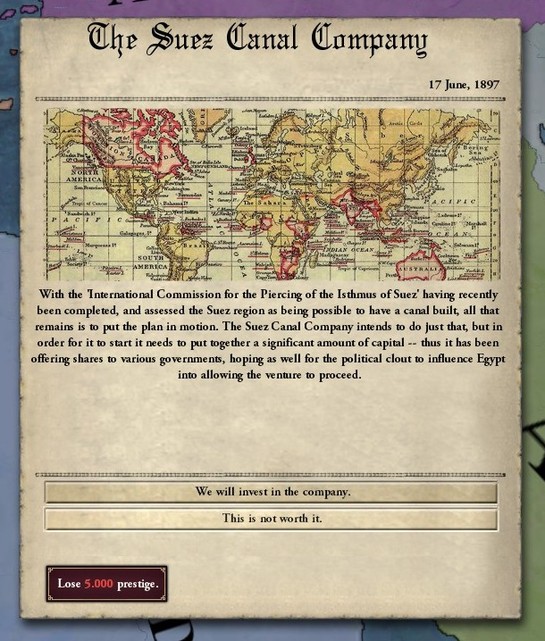
And after being spurned by the Andalusi, the Egyptians turned to the other great powers, with the Russians sweeping in and acquiring hundreds of shares in the Royal Suez Company, becoming the majority holder in the Suez Company.
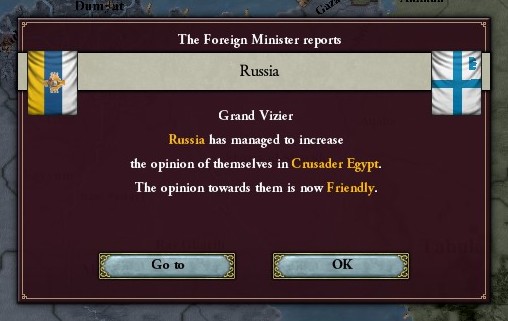
Just a year later, at the height of the summer of 1899, the Empress of Russia personally opened the Suez Canal for shipping, with the HIRMS Imperator Alexandrovich becoming the first vessel to traverse the canal.
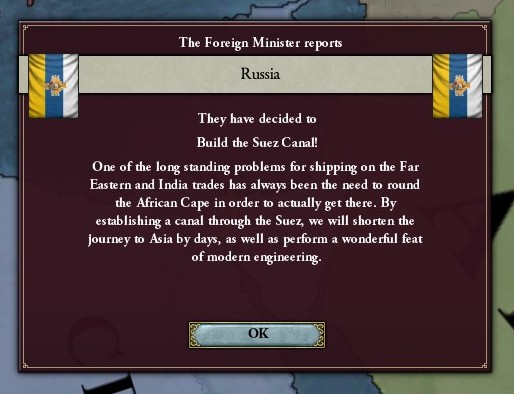
The opening of the Suez Canal dramatically upset the balance of world trade, with shipping avenues immediately shifting from the Cape route to the Suez. In addition to their territories in the Gulf of Aden, this meant that Russia now controlled the primary routes to and from the East, only further enriching their coffers and entrenching their influence in the region.
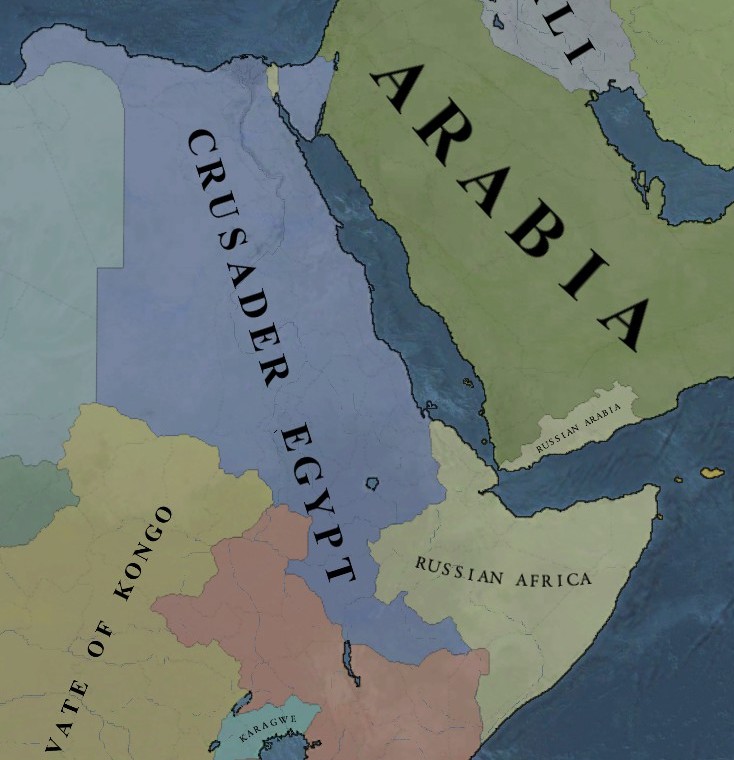
Back in Iberia, Grand Vizier Rodyllah finally began his ambitious reform of the social system, forcing the liberal and moderate parties to support the establishment of national education, with two dozen carefully-regulated boarding and day-schools to be opened over the course of the next decade.


The papers weren't interested in social reform, however, they didn't make good headlines. Instead, the public were enraptured with the naval advancements of Morocco and the launching of the Dreadnought, an ocean-going steel-mountain that would utterly revolutionise the fight for naval dominance. Spanning almost two hundred metres in length, powered by steam turbines and boasting fifteen primary guns, the Dreadnought was borne out of the desperate need to regain the naval initiative, with the warship becoming the personal project of Sultan Ajeddig, who was determined to deliver a stinging defeat to his rivals across the straits when they next clashed.
And unsurprisingly, news of the Dreadnought quickly ignited a war scare in Al Andalus, where the liberals denounced the ruling government for their stringent military spending and refusal to expand the navy, but the socialists refused to budge from their isolationist stance.
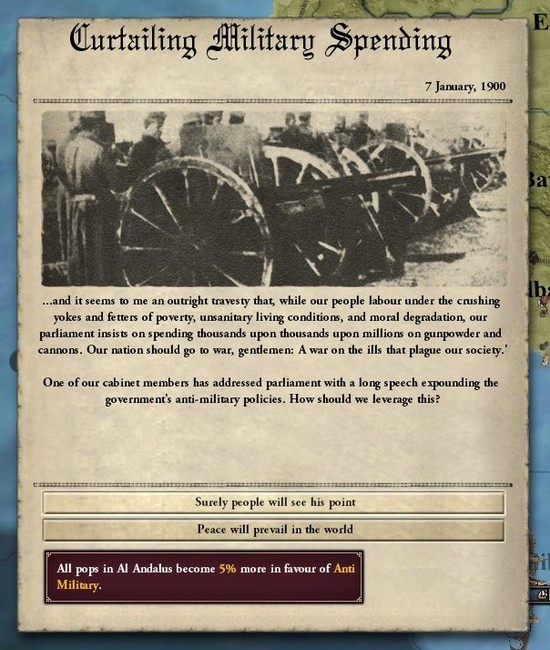
And this crisis was quickly followed by another, this time halfway across the world, in Andalusi India, where rebellions were raging across Bihar, Pegu and the Bengal.
The Grand Vizier couldn’t be blamed for this rebellion, of course, but he was quickly criticised for refusing to enlarge the Indian Expeditionary Force - which was barely able to maintain order in the colonies.
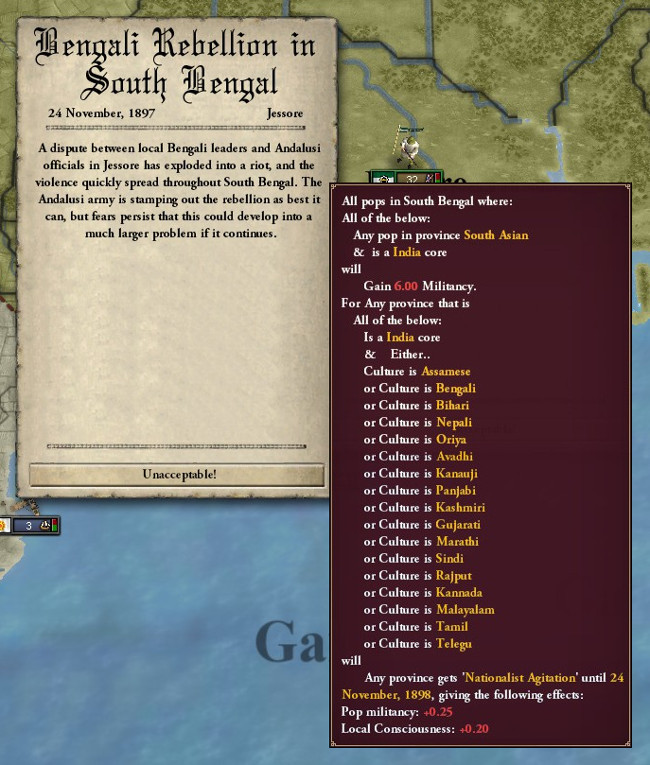
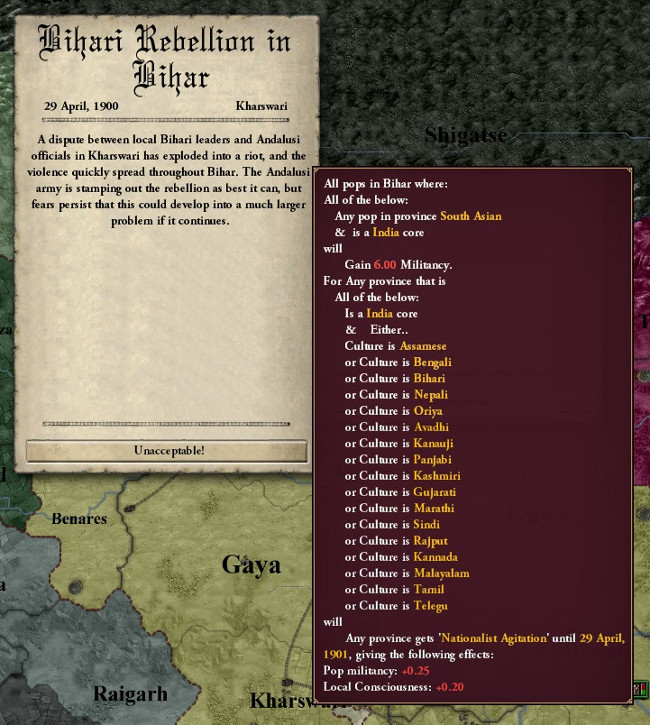
Despite his disastrous handling of the war scare and the Indian crisis, Rodyllah still commanded the loyalty of his party and allies, with only the liberals left marginalised by his decisions. He couldn’t walk the tightrope forever though, and in October of 1899, he finally missed a step and plummeted into the black abyss.
Whilst on another of his now-customary campaign trails, the Grand Vizier delivered a momentous speech in which he publicly encouraged the general populace to begin questioning and opposing Sultanic rule. Political reform was a necessary evolution, he insisted, and the ruling dynasty would only stamp out any attempts democratise the government - unless the people did something about it.
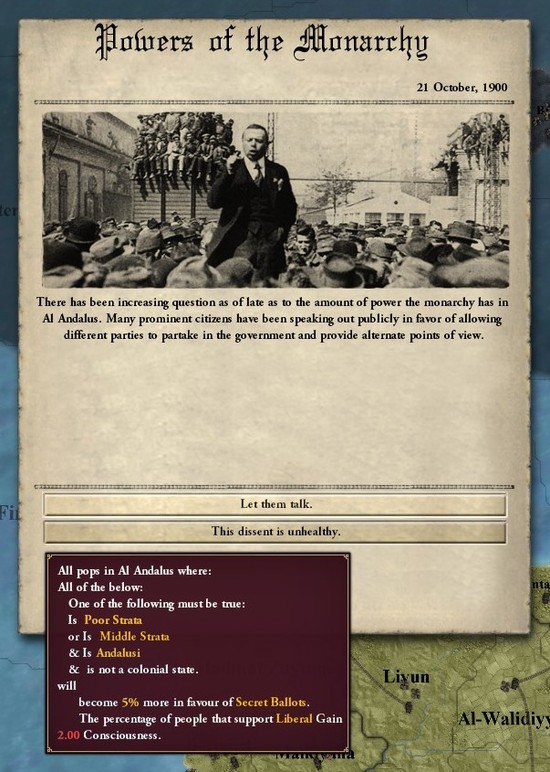
That, as it turned out, would be a very costly error.
To the largely uneducated masses, Rodyllah’s speech meant one thing - that he was a communist, likely aligned with the radical northerners, who supported the abolition of monarchy. The backlash was immediate, with massive protests erupting all across southern Iberia, demanding the immediate dismissal of Rodyllah and his government. The Grand Vizier would never have the opportunity to step down, however, because he was shot four times from four different directions whilst being rushed through a swarming crowd in Batalyaws, where his speech had descended into anarchy.
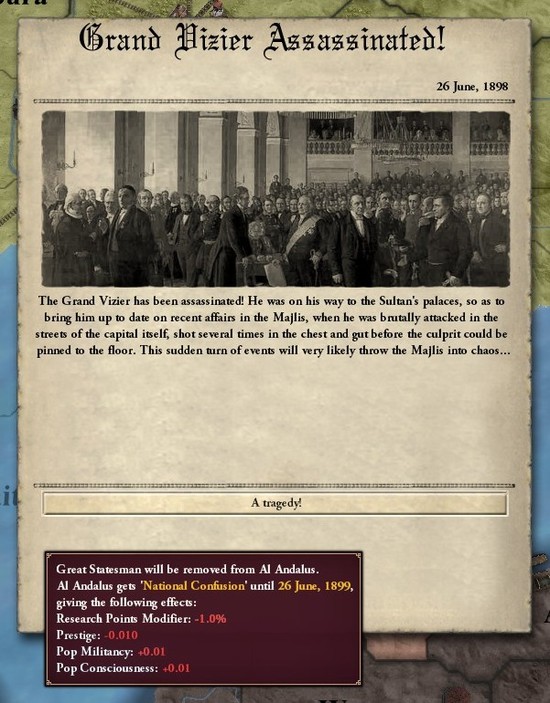
The assassins were a blur of black, disappearing into the crowds even before their bullets plunged into the Grand Vizier. Two glanced off his arm and one thudded into his shoulder, but the last punctured his back, severing his spine and paralysing him in an instant. The Grand Vizier dropped like a rock, and despite surviving for another five weeks, he would never rise again.
Whilst the Andalusi suffered their third assassination in as many years, their cousins across the Atlantic Ocean weren’t faring much better...
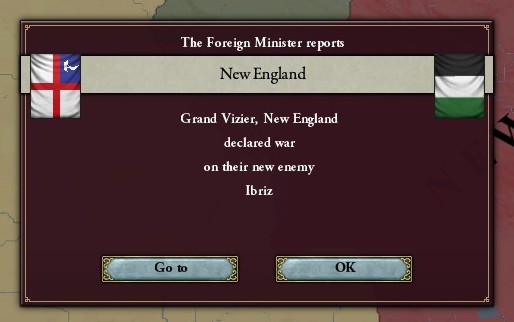
Just as the winter of 1898 began, the Butler Queen - now little more than a constitutional figurehead - formally granted her parliament’s request to declare war on Ibriz, with ferocious battles immediately erupting along the banks of the Mississippi.
The revolutionary council of Ibriz immediately dispatched an urgent diplomatic cable to Al Andalus, but their requests for monetary and military assistance went ignored by the government in Qadis. The Ibrizi, like the Beninese before them, would be fighting alone.
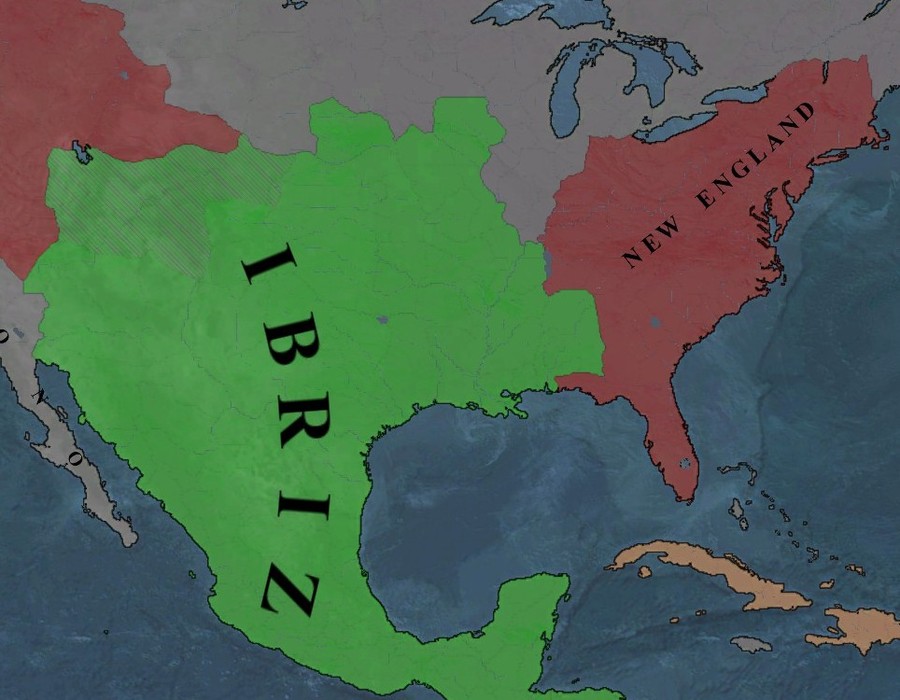
And to the east, another Balkan war had just come to an end, with Hungary besting Serbia after six years of costly, bloody warfare. Bosnia swapped hands once again, though the region was utterly devastated, largely depopulated and constantly rebellious by now - little more than a hotbed of nationalism and radicalism.
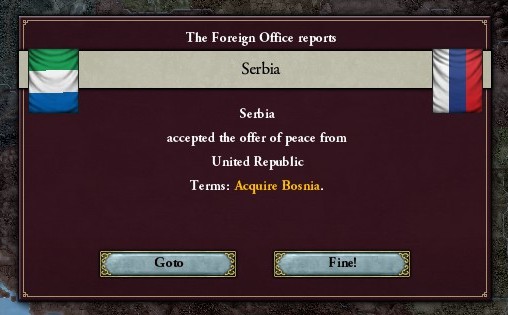
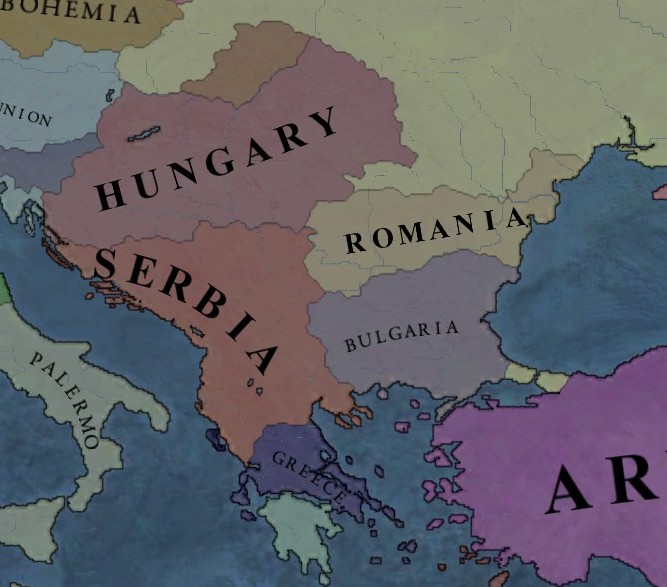
In the Far East, meanwhile, the Guang conducted a lightning offensive against the remaining dynasties, incorporating into the revived Empire of China one by one.
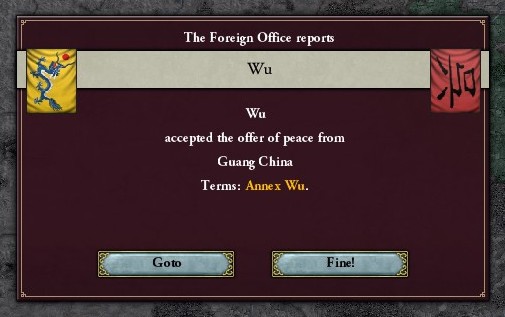
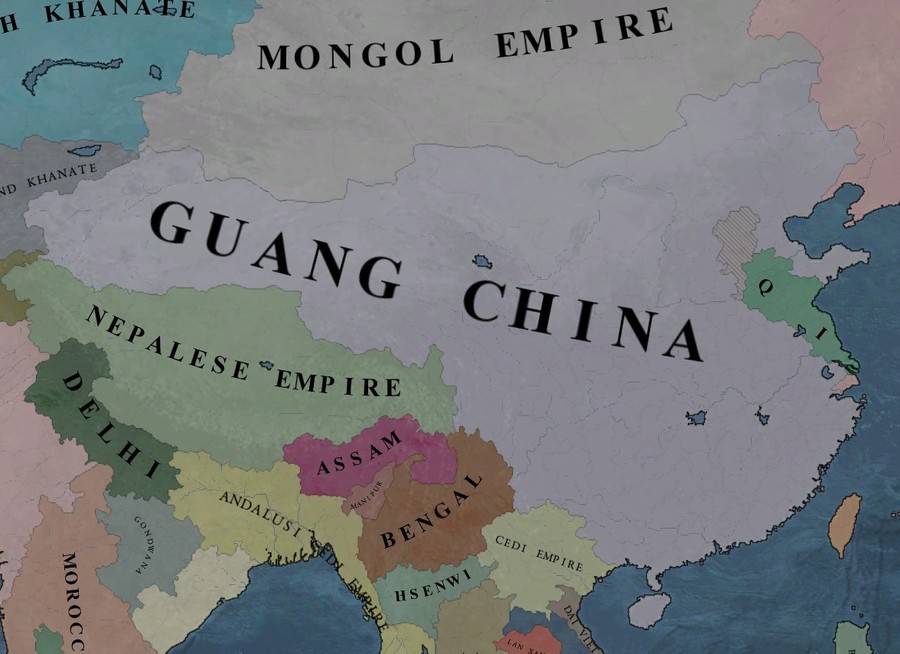
This naked aggression would not go unanswered, however. With his population now openly calling for war, the shushõ of Japan finally declared on the Empire of China, with the dictator vowing to seize Beijing, overthrow the Guang and spread the revolution to the rest of Asia.
And with that, at long last, the east exploded into war.
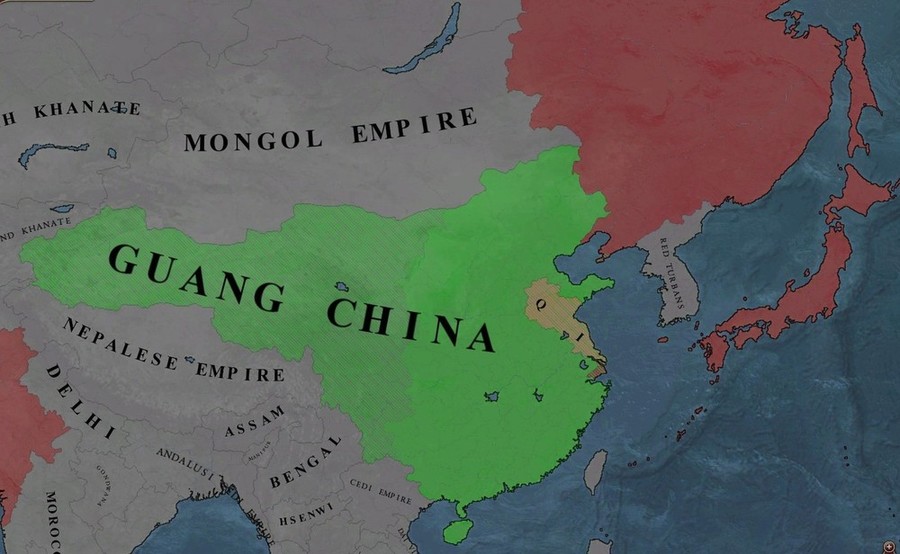
Whilst politicians watched the developments in China with interest, however, the industrial magnates and business moguls of the world were focused on Africa. Under the careful eye of the Khedive of the Kongo, several missions had been launched to begin harvesting the immense rubber forests, just waiting to be extracted and sold at immense profits.
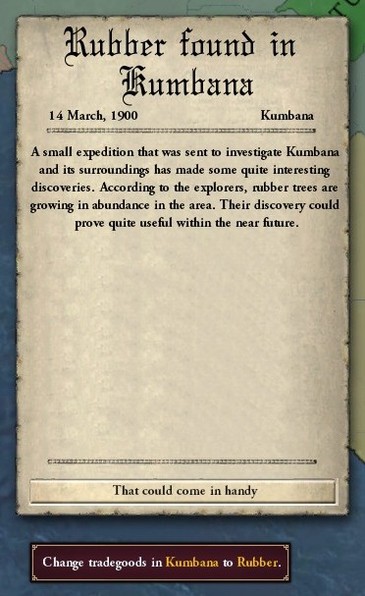
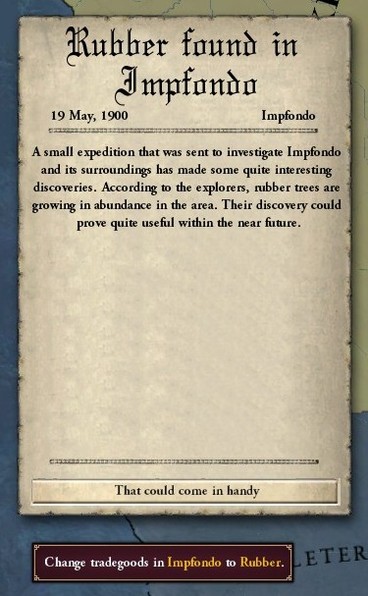
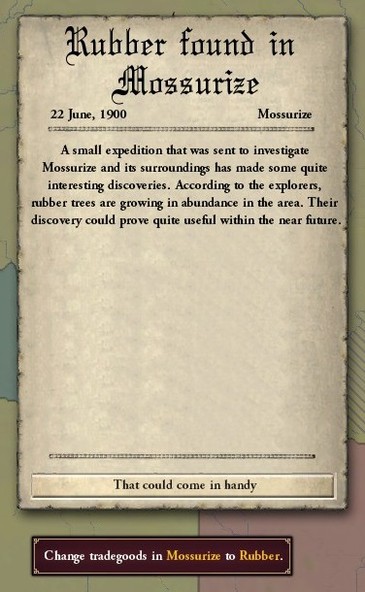
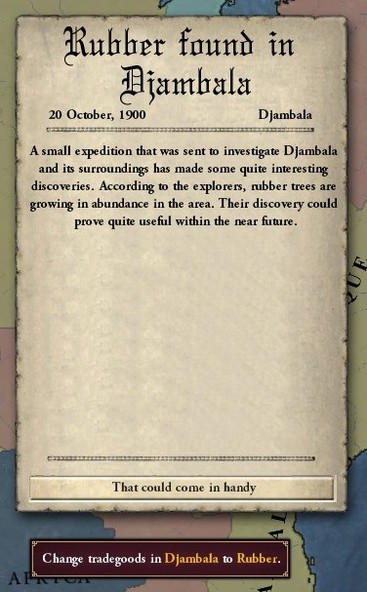
His newfound autonomy also meant that Wahb Min-al-Bita could begin efforts to expand the boundaries of a domain, with the Khedive authorising an invasion of Karagwe in the winter of 1899, quickly crushing and annexing the native kingdom.
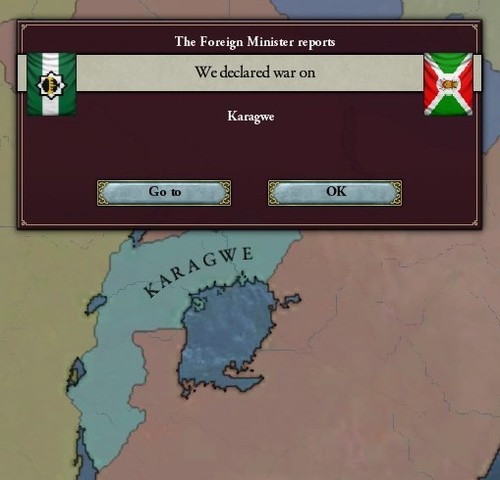
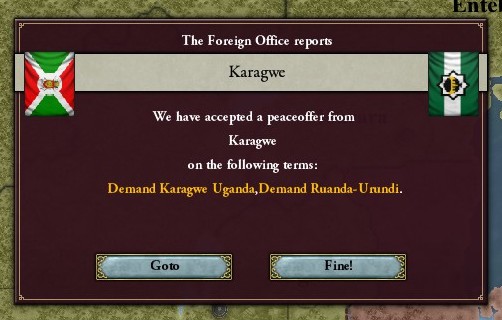
And unbeknownst to Qadis, the Khedive also opened embassies in the colonial capitals of surrounding powers, including Benin, Morocco, Egypt and Russia. It quickly became public knowledge that Wahb was in frequent discussion with the King of Benin, allowing the Khedive to negotiate a land swap between them, finally giving him complete and uncontested control of the Kongo River basin
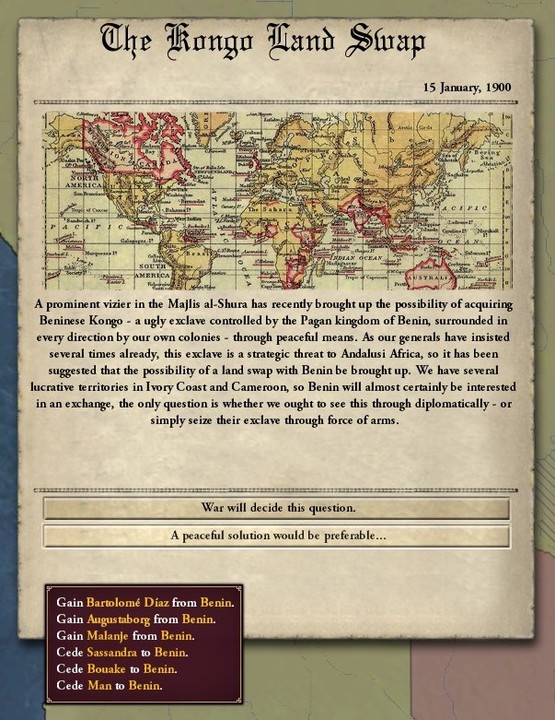

In Iberia, on the other hand, the string of assassinations was followed with a power struggle in the Majlis, a power struggle that finally ended with one Rajul Majnun Mujamad rising to power.
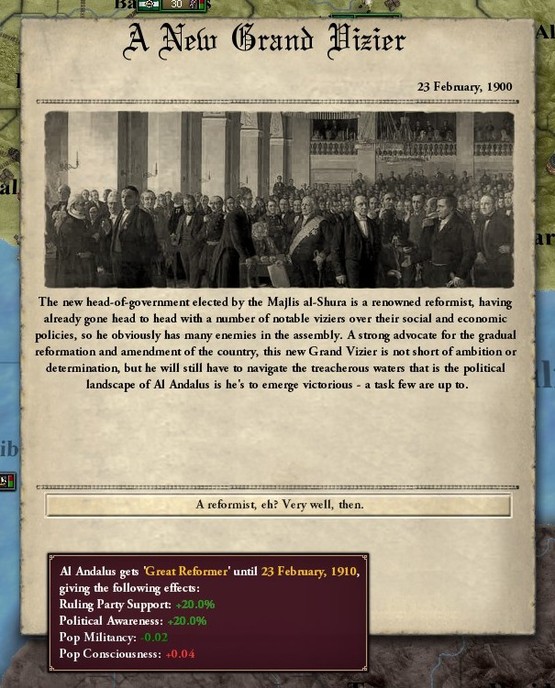
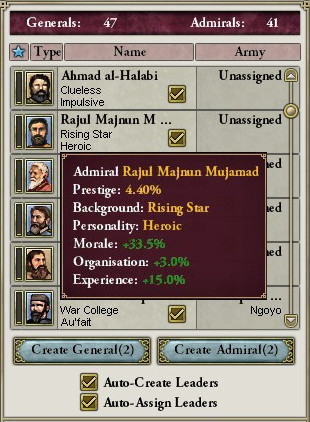
The first Grand Vizier of the new century, Rajul’s first speech to the general public was more a fiery sermon than anything else, with the charismatic speaker insisting that everything was about to change. The time had come for the socialists to stand and fight, no longer would they keel to liberals, or bow to moderates or treat with reactionaries. The government had to be reformed, the people had to be given a voice and the sultan had to be held to account. And he, the Red Vizier, would do just that.
Sultan Khuzaymah, however, had plans of his own. Backed by his ardent supporters and dedicated police, Khuzaymah returned to Qadis on the first morning of 1900, fully recovered and determinedly ambitious (with a few bottles of laudanum weighing down his pockets, just in case). The string of political assassinations had proven that this “Reformed Socialism” was nothing but an unstable farce, and that despite the failed attempts of past viziers to reconcile them, Monarchism and Socialism were contradictory - and unless one prevailed, then the risk of Iberia fracturing was all too real.
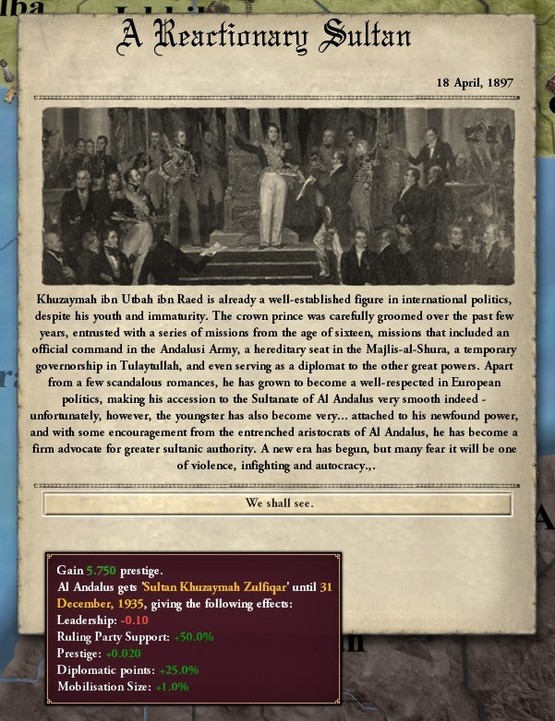
Lines and borders were being drawn across the width of Iberia, but Al Andalus wasn’t the only nation threatening to rupture, with the same being done in Germany…
During the years-long occupation of Germany by Russian forces, a small group of nationalists founded a resistance organisation that became immensely popular amongst the general population. Eagerly riding the wave of popularity, this resistance became a political party after the war and appropriated the principles and policies of a similar irredentist movement in Italy - Fascism.
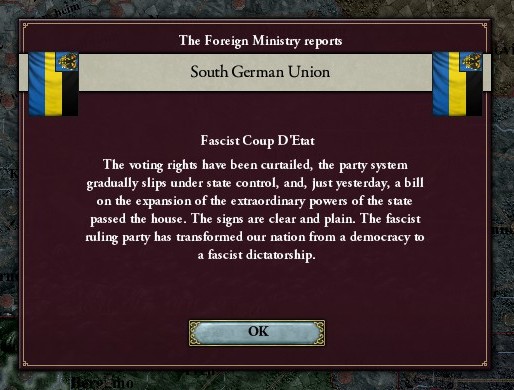
This new breed of ultranationalism quickly grew to dominate the political arena of South Germany. Doggedly opposing liberal and socialist movements, systematically eliminating their opponents in parliament and strategically deploying volunteer militias to major cities, the world’s first fascist government presented an ultimatum to the Archduke of Bavaria in 1900 - surrender power to them, or be overthrown.
And that was no choice at all.
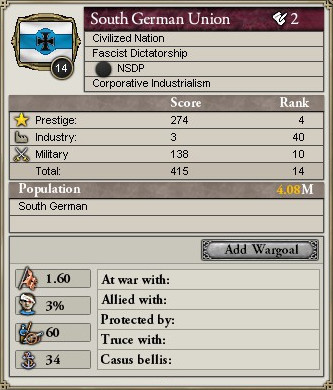
Starkly opposed along ideological lines, a curtain was quickly descending across Germany, with the fascist authoritarian south slipping further away from the liberal democratic north with every passing day.
The dream of a unified Germany was just that - a dream, unless something was done about it now.
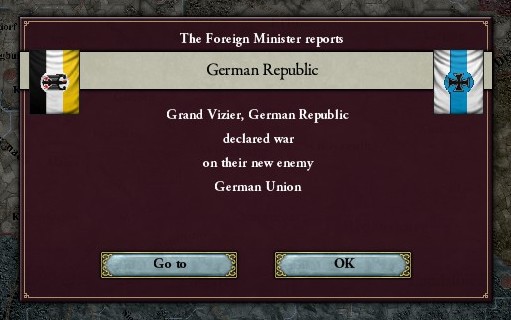
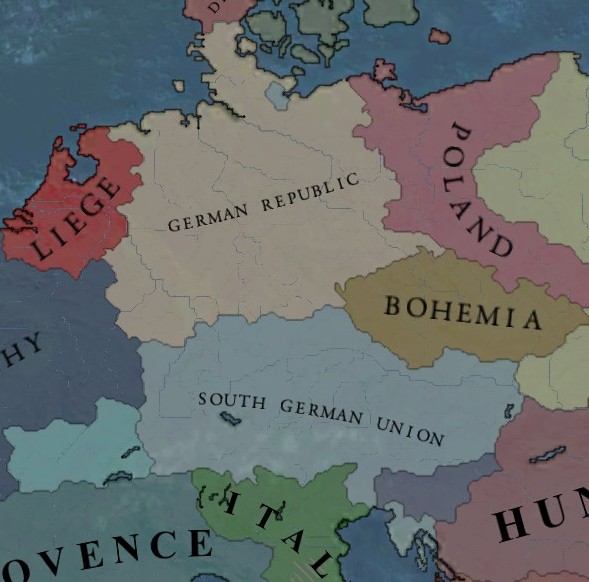
And at the same time, another threat to the status quo erupted further east, in the Balkan Peninsula.
Having suffered two revolutions and three wars in quick succession, Serbia had become a battleground of warring ideologies, one that climaxed when a small band of communist rushed the parliament and seized power overnight. Within a scant few days, the elected government was overthrown and a proletarian dictatorship was proclaimed, with the world’s first communist government coming to power.
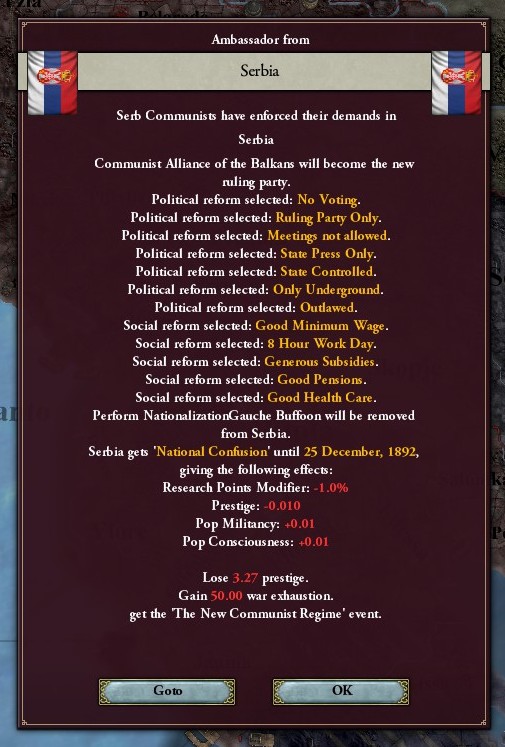
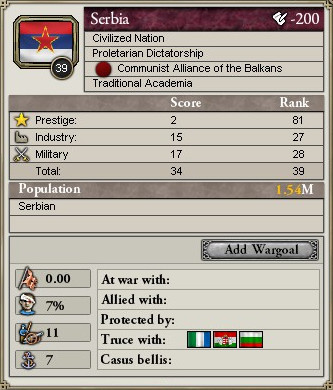
The nineteenth century had begun with a continent on the verge of war, and despite the intentions of the peacemakers and politicians who organised the Congress of Cádiz, it ends in much the same way. With monarchy on the retreat, nationalism burning strong, radicals seizing power across the globe and the spectre of world war drawing closer, the twentieth century begins on a solemn, sombre note.
World map:
